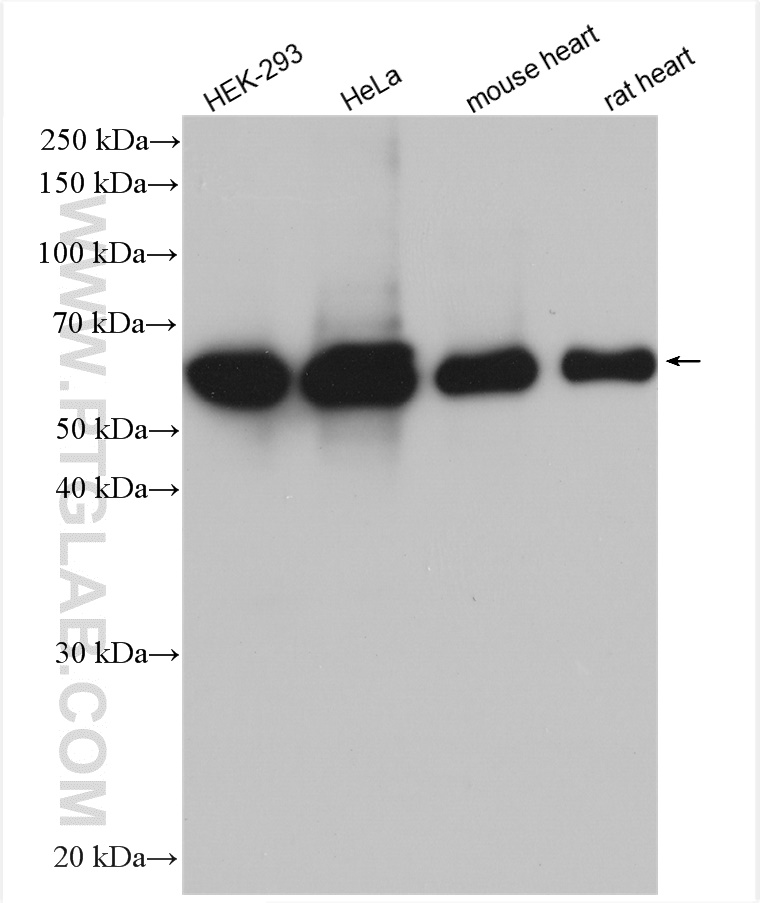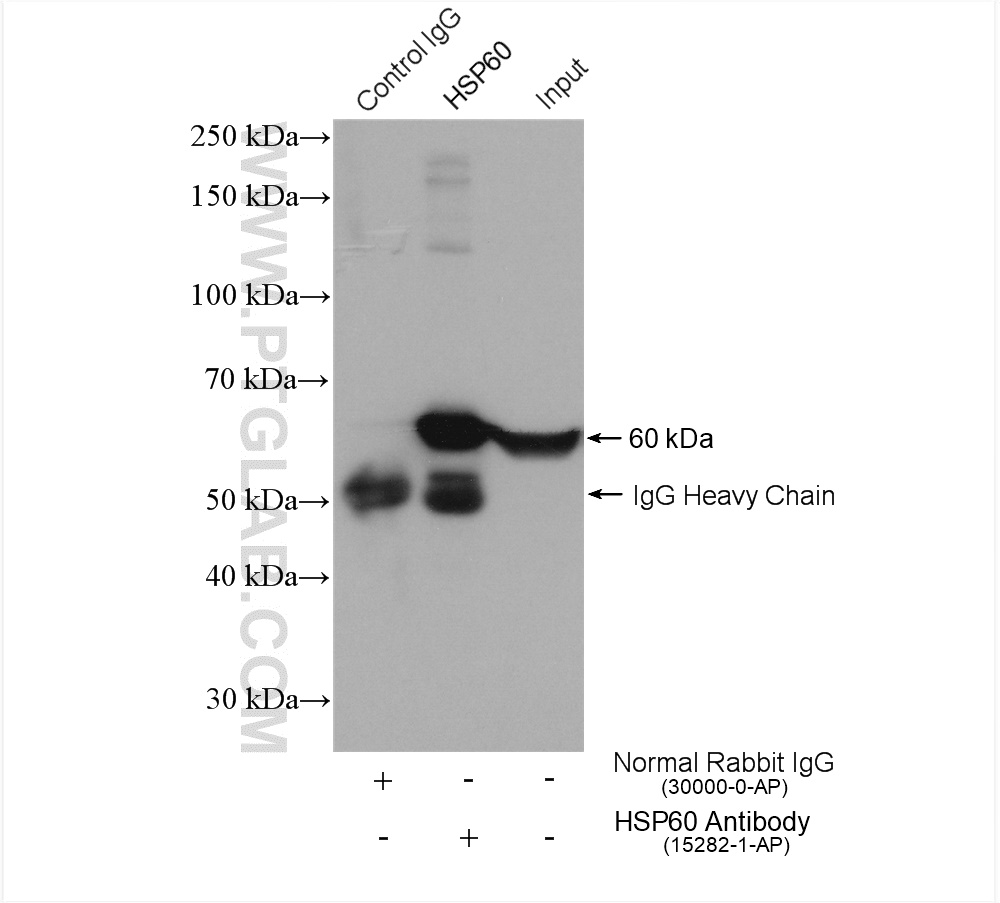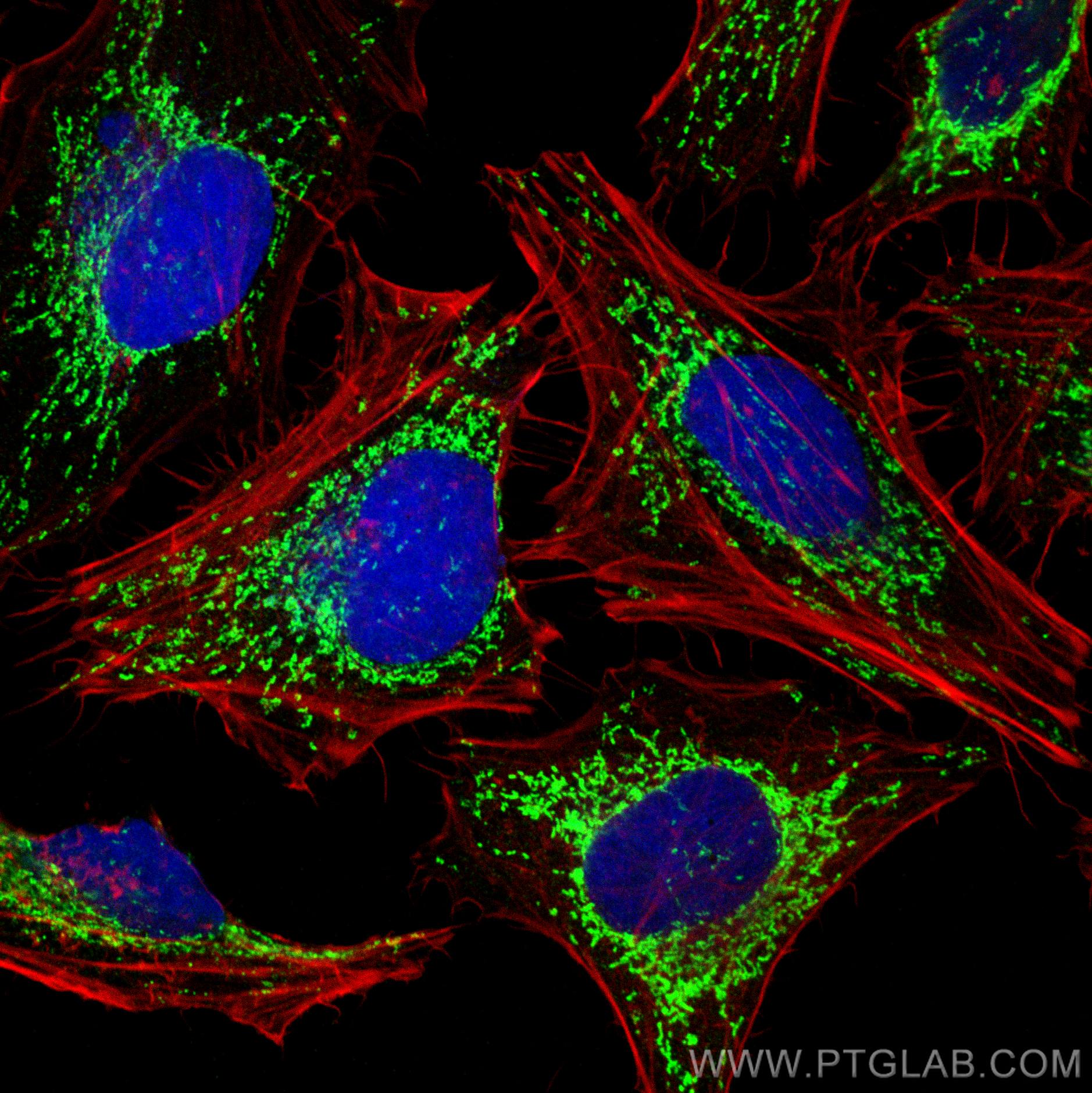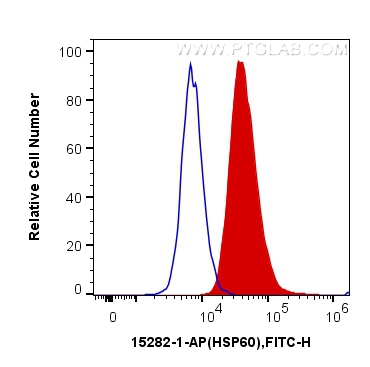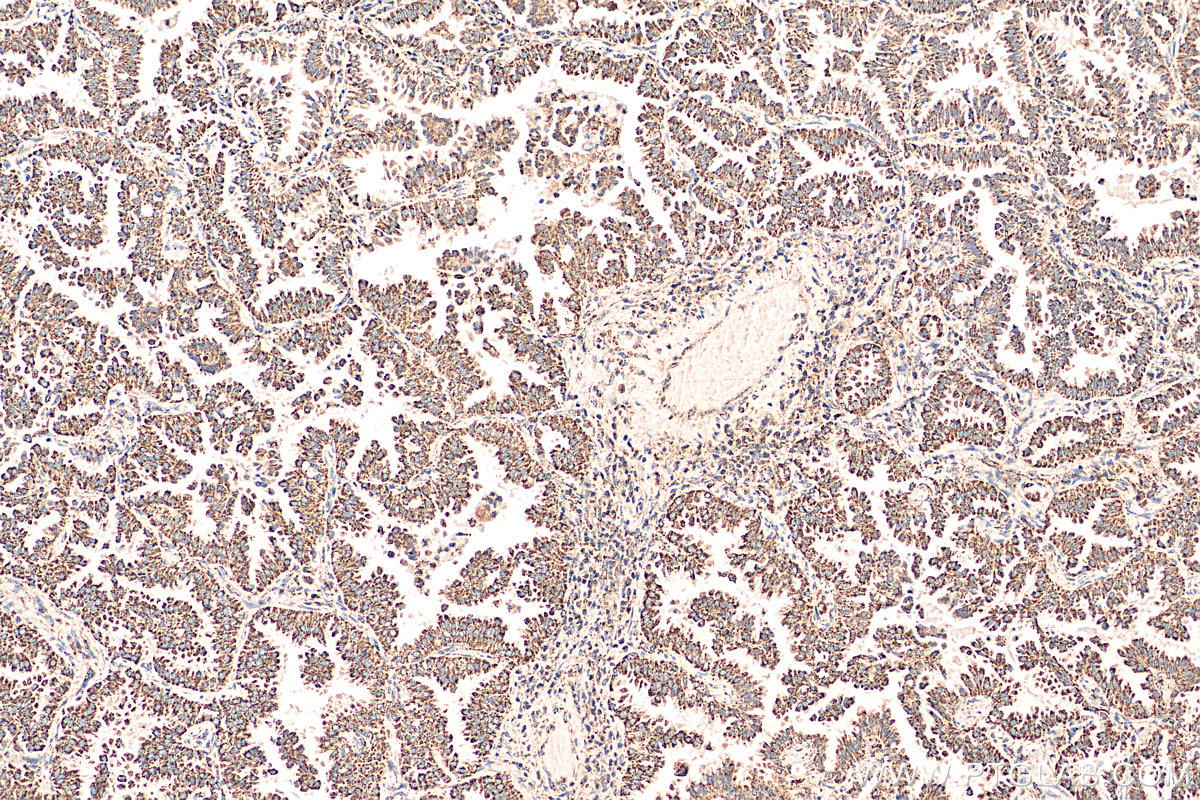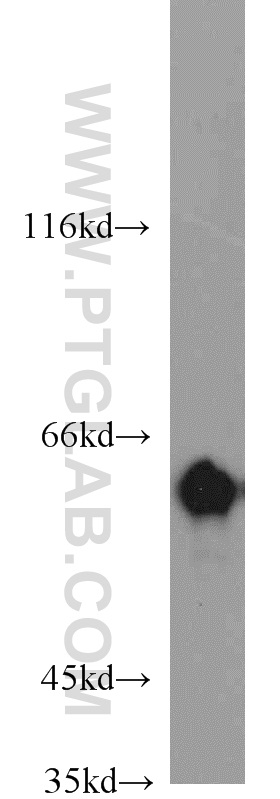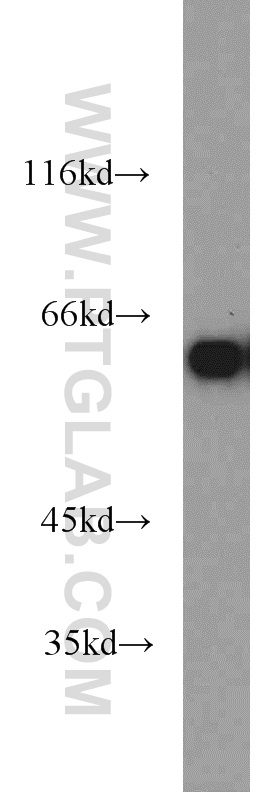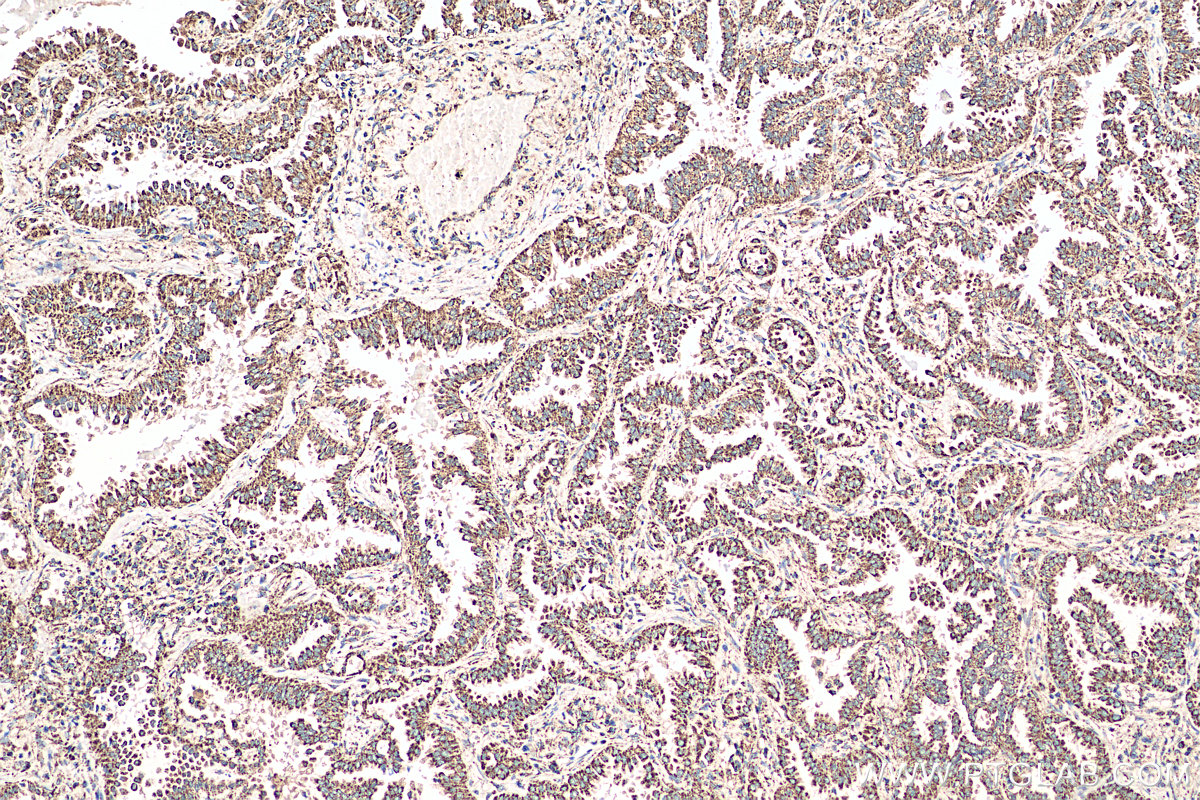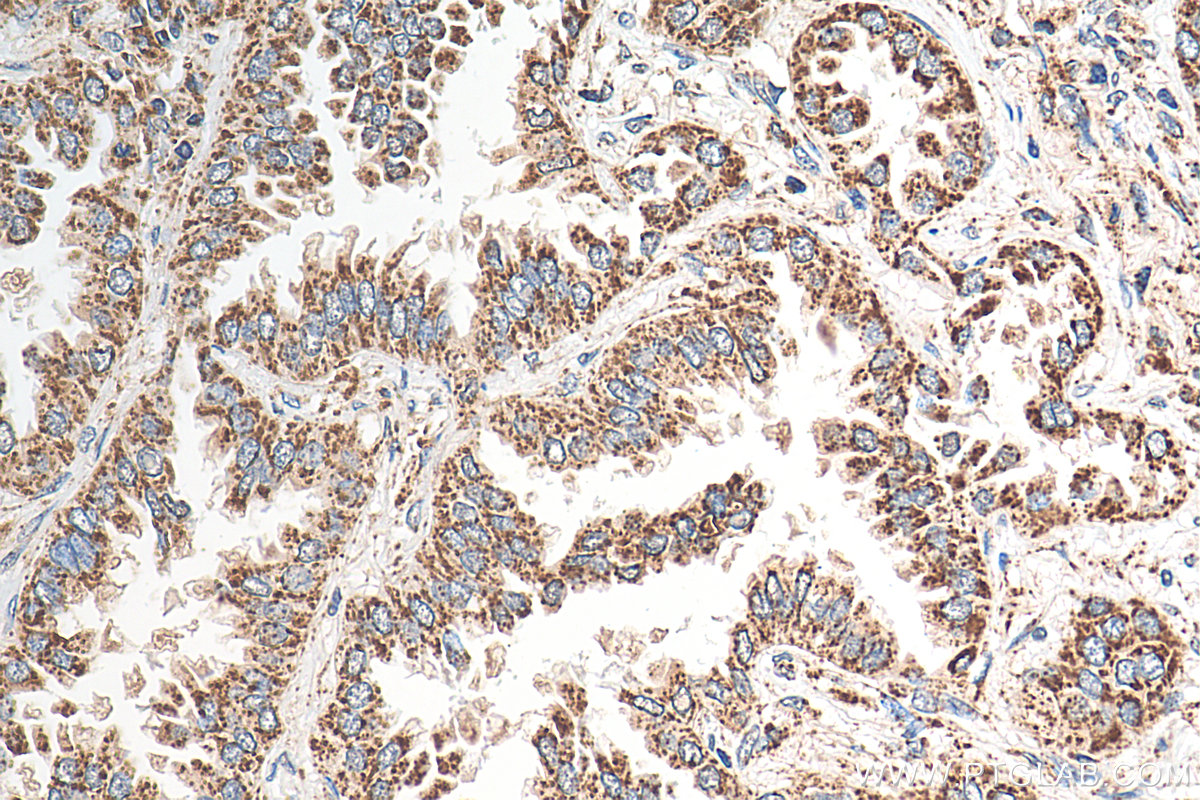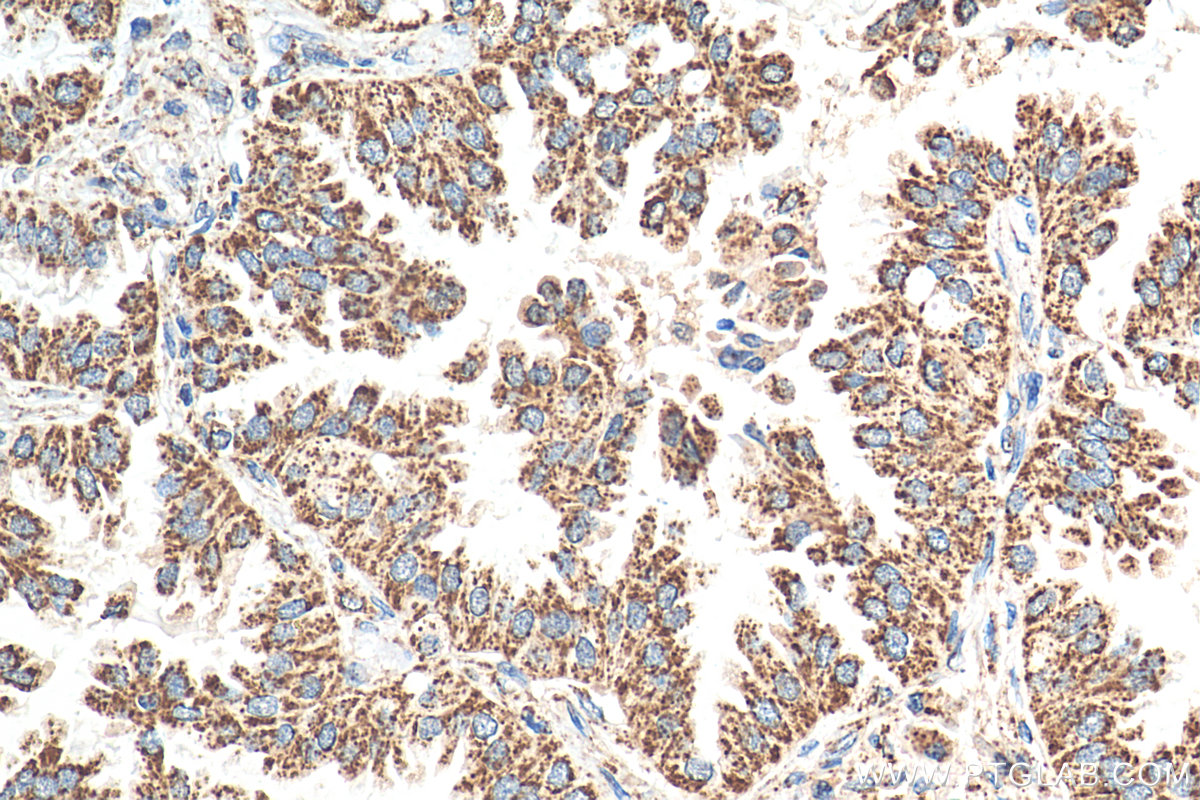验证数据展示
经过测试的应用
| Positive WB detected in | HEK-293 cells, HepG2 cells, NIH/3T3 cells, HeLa, mouse heart, rat heart |
| Positive IP detected in | HEK-293 cells |
| Positive IHC detected in | human lung cancer tissue Note: suggested antigen retrieval with TE buffer pH 9.0; (*) Alternatively, antigen retrieval may be performed with citrate buffer pH 6.0 |
| Positive IF/ICC detected in | HeLa cells |
| Positive FC (Intra) detected in | HepG2 cells |
推荐稀释比
| Application | Dilution |
|---|---|
| Western Blot (WB) | WB : 1:2000-1:16000 |
| Immunoprecipitation (IP) | IP : 0.5-4.0 ug for 1.0-3.0 mg of total protein lysate |
| Immunohistochemistry (IHC) | IHC : 1:50-1:500 |
| Immunofluorescence (IF)/ICC | IF/ICC : 1:50-1:500 |
| Flow Cytometry (FC) (INTRA) | FC (INTRA) : 0.40 ug per 10^6 cells in a 100 µl suspension |
| It is recommended that this reagent should be titrated in each testing system to obtain optimal results. | |
| Sample-dependent, Check data in validation data gallery. | |
产品信息
15282-1-AP targets HSP60 in WB, IHC, IF/ICC, FC (Intra), IP, CoIP, ELISA applications and shows reactivity with human, mouse, rat samples.
| Tested Applications | WB, IHC, IF/ICC, FC (Intra), IP, ELISA Application Description |
| Cited Applications | WB, IHC, IF, IP, CoIP, ELISA |
| Tested Reactivity | human, mouse, rat |
| Cited Reactivity | human, mouse, rat, pig, chicken, zebrafish, goat, yeast, fish, duck |
| Immunogen | HSP60 fusion protein Ag7401 种属同源性预测 |
| Host / Isotype | Rabbit / IgG |
| Class | Polyclonal |
| Type | Antibody |
| Full Name | heat shock 60kDa protein 1 (chaperonin) |
| Synonyms | HSPD1, Heat shock protein 60, GROEL, EC:5.6.1.7, CPN60 |
| Calculated Molecular Weight | 61 kDa |
| Observed Molecular Weight | 60 kDa |
| GenBank Accession Number | BC003030 |
| Gene Symbol | HSP60 |
| Gene ID (NCBI) | 3329 |
| RRID | AB_2121440 |
| Conjugate | Unconjugated |
| Form | Liquid |
| Purification Method | Antigen affinity purification |
| UNIPROT ID | P10809 |
| Storage Buffer | PBS with 0.02% sodium azide and 50% glycerol pH 7.3. |
| Storage Conditions | Store at -20°C. Stable for one year after shipment. Aliquoting is unnecessary for -20oC storage. |
背景介绍
HSPD1, also known as HSP60, belongs to the chaperonin family and acts as a chaperone to enhance cell survival under physiological stresses. Hsp60 has been shown to be connected with many aspects of cell functions such as protein folding and assembling of polypeptide chains in mitochondria. Recently it has been reported that HSP60 is associated with apoptosis or inhibition of cancer cell growth. (21822415)
实验方案
| Product Specific Protocols | |
|---|---|
| WB protocol for HSP60 antibody 15282-1-AP | Download protocol |
| IHC protocol for HSP60 antibody 15282-1-AP | Download protocol |
| IF protocol for HSP60 antibody 15282-1-AP | Download protocol |
| IP protocol for HSP60 antibody 15282-1-AP | Download protocol |
| Standard Protocols | |
|---|---|
| Click here to view our Standard Protocols |
发表文章
| Species | Application | Title |
|---|---|---|
Nucleic Acids Res RNase H1 facilitates recombinase recruitment by degrading DNA-RNA hybrids during meiosis | ||
J Hazard Mater Long-term effect of PBDE-99 prenatal exposure on spermatogenic injuries via the dysregulation of autophagy | ||
Nat Commun Endonuclease G promotes autophagy by suppressing mTOR signaling and activating the DNA damage response. | ||
Nat Commun Prohibitin 1 is essential to preserve mitochondria and myelin integrity in Schwann cells. |
